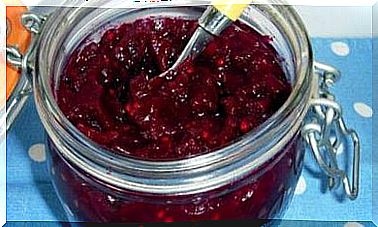Properties And Benefits Of Helenium Root

Inula helenium, also known as helenium, elecampana, Elena flower or edenula, is a plant native to Europe that is characterized by stiffness, yellow flowers with long petals and thick roots. What are the properties and benefits of helium root?
His name is said to come from Helena, the woman for whom the Trojan conflict began. The plant was used by the Romans to treat various diseases of the skin, digestive system and even the kidneys.
The root and rhizomes are often used in traditional Chinese medicine and herbology, which is why teas, tinctures, syrups, extracts and candied pieces are marketed.
How is helium root (Elena’s flower) used?
Helenium root has served as a traditional remedy for a large number of ailments. As I said, the ancient Romans used it to treat diseases that affected the condition of organs such as the skin, stomach, uterus, kidneys and brain.
In the seventeenth century, it became popular to add it in chewable tablets, while today it is used for colds, fighting staph infections and relieving stomach problems. It is often used to flavor food and beverages and to imprint its pleasant scent in beauty products.
Health benefits of helenium root
According to research published in the Journal of Ethnopharmacology, helenium root has anti-inflammatory properties that can help with respiratory disorders.
An analysis of over 120 studies found that Inula helenium is a source of antioxidants that fight oxidative stress and diseases caused by chronic inflammation, such as diabetes. In general, this action is attributed to the chemical compound known as allantolactone.

In folk medicine, helenium root is appreciated for its ability to reduce coughs and alleviate respiratory diseases such as rhinitis, bronchitis and sore throats.
According to a study published in Respiratory Research, allenolactone contained in helium is able to inhibit inflammation caused by contact with cigarette smoke. Research has also suggested that this compound has the potential to contribute to the treatment of chronic obstructive pulmonary disease (COPD).
Also, a study in children with acute cough found that taking a helenium suppressant for 8 days was not only safe, but also reduced the severity and duration of the cough.
Although more research is needed, there is scientific evidence linking helenium chemicals to a decrease in carcinogenic activity.
An in vitro study showed that helenium extract is toxic to some cancer cells and has antitumor potential. The compound eudesmane sesquiterpenoid present in helenium can destroy leukemic cells.
Similarly, research published in Phytotherapy Research and the Archives of Pharmacal Research has suggested that helenium extract may inhibit breast cancer cells. This is due to the action of sesquiterpene lactones and allantolactone.
However, there is no certainty about its use as a first-line treatment in oncology. Caution and doctor’s approval are recommended.
Helenium extract has been shown to have active compounds that fight Staphylococcus bacteria . In fact, a study published in the European Journal of Clinical Microbiology and Infectious Diseases revealed that the root was effective against this bacterium.
Research published in Planta Medica has also found that helium extract can kill the bacterium Mycobacterium tuberculosis, which causes tuberculosis. It is also associated with inhibition of the Candida fungus .
Given its antimicrobial, anti-inflammatory, carminative and antispasmodic properties, it is believed that helenium root can help reduce nausea, flatulence and diarrhea.
Its content of allantolactone and isoalantolactone is also associated with the death of parasites and intestinal worms, which cause a significant number of digestive disorders.
Side effects and contraindications of helenium root
Taking a standard dose of oral helenium root is considered safe. However, some plants in the genus Inula may affect blood pressure and blood sugar control, so they are not recommended for diabetics or people taking medicines for hypertension.
Sesquiterpene lactone present in the helenium root can cause an allergic reaction in people who do not tolerate plants of the Asteraceae family .
Likewise, there is anecdotal evidence that helium root should not be consumed with sleeping pills. Helenium is also not recommended for pregnant and lactating women, as there is no research to certify its safety.

Presentations and dosage
Helenium root can be found in the form of dry powder, liquid extract, loose tea and dry pieces. However, the doses may vary and there is not enough evidence to determine the most appropriate option.
Therefore, although there are products that indicate the administration of 1/4 or 1/2 teaspoon per day, it is best to talk to your doctor.
Helen or Elecampana is a plant native to Europe. The myth says that its name comes from Helen of Troy, who with her tears gave life to this plant. The most used part is the root, appreciated for a number of properties that allow it to be effective in ameliorating certain diseases.
In general, helenium root is known to have antioxidant, antimicrobial, anti-inflammatory and even carminative benefits. It can improve respiratory health and improve digestive problems.
However, although it is considered safe in standard doses, pregnant and breastfeeding women, as well as diabetics and people taking certain medications, should avoid it.









